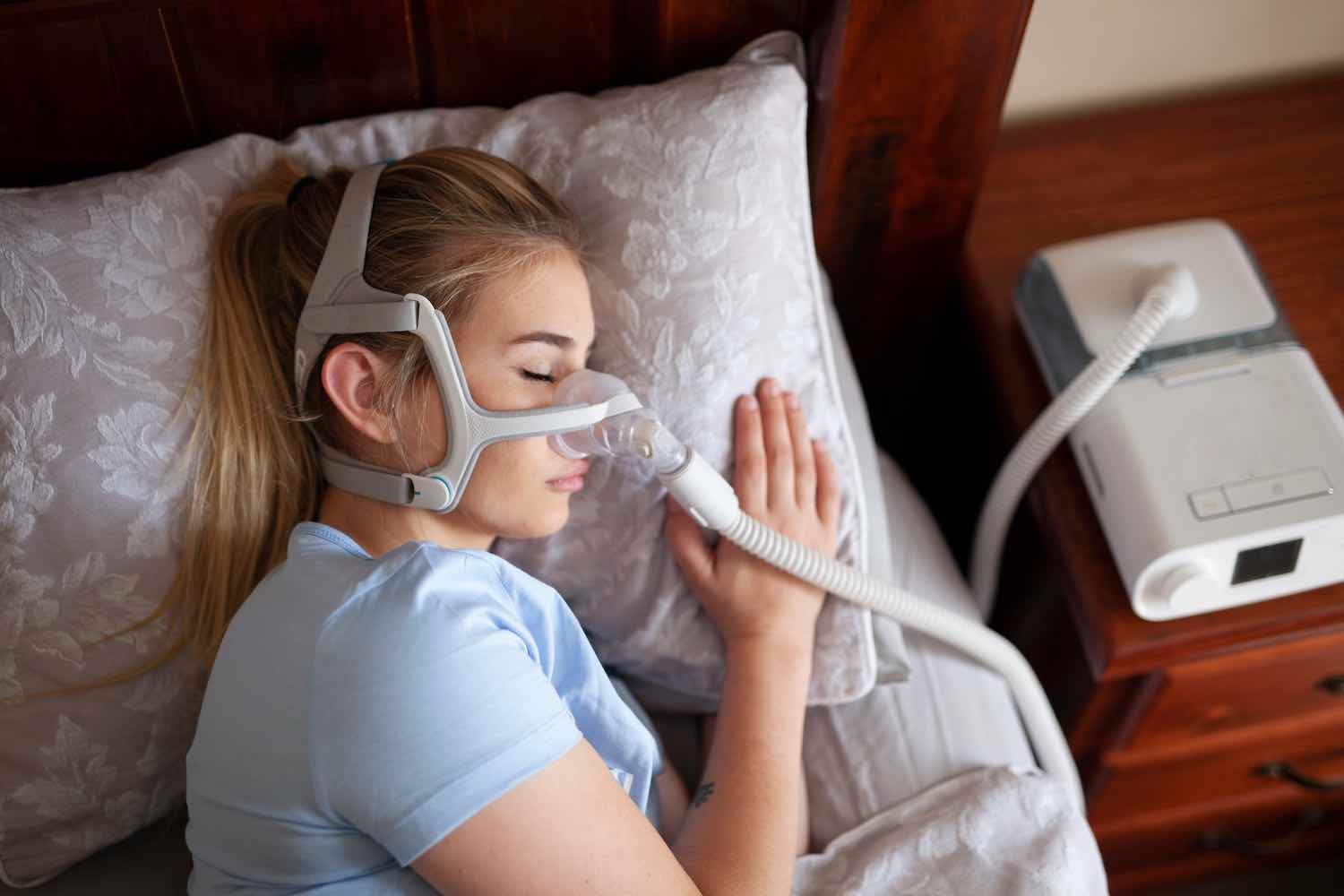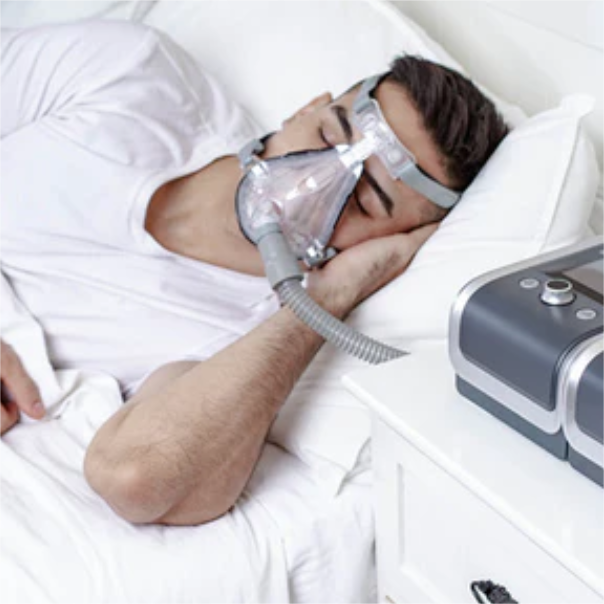BiPAP Rental Solutions for Short-Term Medical Requirements
BiPAP Rental Solutions for Short-Term Medical Requirements
Blog Article
Bipap vs. CPAP: Which Is the Best for Your Sleep Condition?
When browsing the complexities of rest problems, the selection in between BiPAP and CPAP therapy is an important consideration. Each method uses one-of-a-kind advantages customized to certain conditions, yet the choice depends upon private person demands and comfort degrees. While CPAP supplies a constant air movement suitable for obstructive rest apnea, BiPAP's dual pressure setups might enhance convenience for those with more detailed respiratory issues. Recognizing these distinctions can dramatically impact treatment efficiency, leaving one to consider which option really straightens with their wellness needs and way of life.
Comprehending Rest Disorders
Sleep conditions incorporate a range of conditions that interfere with typical sleep patterns, influencing both the top quality and period of remainder. These problems can materialize in different types, including sleep problems, rest apnea, narcolepsy, troubled leg syndrome, and parasomnias. Each condition offers one-of-a-kind difficulties, typically leading to considerable daytime fatigue, cognitive disability, and emotional disturbances.
Sleep problems is characterized by problem falling or remaining asleep, while sleep apnea involves duplicated interruptions in breathing throughout rest, frequently causing fragmented remainder. Narcolepsy, on the other hand, is noted by extreme daytime sleepiness and sudden rest attacks. Agitated leg disorder causes uncomfortable feelings in the legs, motivating an irrepressible impulse to move them, which can additionally impede the capability to go to sleep.
The influence of rest conditions extends past private wellness, affecting total efficiency, partnerships, and lifestyle. Understanding the details nature of each disorder is critical for reliable diagnosis and therapy. As sleep health and wellness comes to be increasingly recognized as a vital element of overall wellness, addressing these problems is important for boosting both rest top quality and day-to-day performance.
Exactly How CPAP Works
Continuous Favorable Air Passage Stress (CPAP) therapy is often utilized as a key treatment for obstructive sleep apnea (OSA) The system of CPAP involves the usage of a maker that delivers a consistent stream of air with a mask put on throughout rest. This air movement keeps favorable stress in the airway, stopping the collapse or blockage of the throat that can occur throughout rest.
When an individual inhales, the CPAP equipment offers a continuous flow of air, guaranteeing that the respiratory tract remains open - BiPAP Rental. This not just relieves the signs of OSA, such as snoring and disrupted rest patterns, but likewise decreases the involved health dangers, including cardiovascular complications and daytime exhaustion
The stress setups on a CPAP maker can be tailored to fulfill individual client requirements, often figured out through a sleep research. Individuals commonly go through titration research studies to discover the optimum pressure level for their one-of-a-kind problem. Regular follow-up and adjustments might be essential to make certain performance and convenience. Overall, CPAP treatment has been revealed to considerably enhance the quality of rest and overall health for individuals suffering from obstructive sleep apnea.
Exactly How BiPAP Functions
BiPAP, or Bilevel Favorable Air Passage Pressure, is a specialized kind of non-invasive ventilation that is particularly valuable for patients with conditions such as complicated rest apnea or respiratory system problems. Unlike CPAP, which supplies a constant stream of air at a single stress, BiPAP gives 2 distinctive stress setups: a higher inspiratory pressure for breathing and a lower expiratory stress for exhalation. This dual-pressure technique enables easier breathing, decreasing the initiative needed during exhalation.
The tool runs via a mask fitted over the nose or mouth, connected to an equipment that produces air pressure. When the client inhales, the device delivers the higher pressure to assist with air movement, guaranteeing that the airway stays open. Upon exhalation, the maker immediately decreases the pressure, making it extra comfy for the person to breathe out.

Trick Differences Between BiPAP and CPAP
:max_bytes(150000):strip_icc()/GettyImages-635878206-25ee9a42856f41cfab94873074580679.jpg)
On the other hand, BiPAP (Bilevel Favorable Respiratory tract Stress) uses 2 various stress setups: one for breathing and a reduced one for exhalation. This dual stress system enables more comfortable breathing, particularly for individuals that have problem with breathing out against a continual pressure. BiPAP is typically suggested for clients with complex sleep apnea, chronic obstructive lung illness (COPD), or those that require extra support during rest.
In addition, the intricacy of BiPAP tools commonly causes a greater expense and needs a lot more careful titration than CPAP. BiPAP Rental. Comprehending these vital distinctions can help in recognizing which tool might be preferable for specific rest conditions, setting the foundation for enlightened treatment choices
Choosing the Right Therapy
Exactly how can one determine the most suitable therapy for handling rest problems? The choice in between BiPAP and CPAP treatment mostly depends upon the certain attributes of the rest disorder, the patient's total health, and their convenience with the gadget. CPAP, which delivers a continual stream of air, is frequently suggested for obstructive sleep apnea (OSA) It maintains an open air passage throughout rest, successfully stopping hypopneas and apneas.
Conversely, BiPAP supplies 2 levels of stress: one for breathing and a reduced one for exhalation. This twin pressure system is useful for clients with intricate sleep apnea or those that experience difficulty exhaling versus a continual pressure. Furthermore, BiPAP is typically recommended for individuals with respiratory conditions, such as chronic obstructive pulmonary condition (COPD), where differing stress setups can improve convenience and conformity.
Eventually, a detailed evaluation by a rest expert, including a sleep research study, can assist establish which treatment aligns best with the patient's needs. Variables such as convenience, convenience of usage, and specific clinical conditions must likewise be thought about to optimize treatment end results.
Conclusion
In recap, both BiPAP and CPAP offer unique purposes in the monitoring of rest disorders. CPAP is reliable for obstructive rest apnea with regular air movement, while BiPAP supplies double stress setups that enhance comfort for those with complicated sleep apnea or breathing problems. The selection between my company these therapies ought to be directed by specific demands and conditions, demanding a thorough assessment by a rest specialist to make certain optimal therapy outcomes and enhanced top quality of rest.

Generally, CPAP therapy has actually been revealed to considerably improve the quality of sleep and total wellness for individuals enduring from obstructive rest apnea.
BiPAP is typically recommended for clients with complicated sleep apnea, chronic obstructive pulmonary illness (COPD), or those that require added support throughout sleep.
CPAP is efficient for obstructive rest apnea with consistent air flow, while BiPAP provides dual pressure setups that enhance comfort for those with complicated rest apnea or respiratory concerns.
Report this page